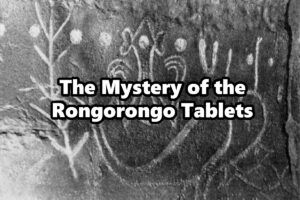A child suddenly speaks Japanese to their sibling, despite never hearing the language before. Their family doesn’t understand a word.
This scenario, as impossible as it sounds, represents one of 40 documented cases analyzed in a new University of Virginia study exploring xenoglossy—the phenomenon of speaking a foreign language one has never learned. The research, published in the Journal of Anomalous Experience and Cognition, reveals a striking pattern: children who claim memories of past lives are significantly more likely to speak unknown languages when those alleged previous lives ended in violence or trauma.
The Emotion-Trauma Connection
Dr. Philip Cozzolino and his research team at UVA’s Division of Perceptual Studies analyzed cases from a database spanning 1959 to 2020. They compared 40 children who exhibited signs of xenoglossy with 872 who did not, all claiming memories of previous lives.
The findings were remarkable. Children displaying xenoglossy were:
- Significantly more emotional when recalling their supposed past-life memories
- More likely to express strong desires to return to their claimed previous family
- Associated with previous personalities who died violently or intentionally
- Found in cases researchers rated as particularly compelling
“The evidence from the database suggests that the phenomenon of speaking, unnaturally, in a foreign tongue is linked to—and strengthened by—the presence of emotion, distress, and violence/trauma,” the researchers concluded.
Beyond Simple Explanations
The study systematically ruled out ordinary explanations for these language abilities. Children with xenoglossy didn’t speak their native language earlier than other children, suggesting superior verbal skills weren’t the cause. Their parents also didn’t have higher education levels, eliminating socioeconomic advantages as factors.
Instead, the pattern pointed toward what researchers term an “emotion-trauma pathway”—suggesting that intense emotional experiences might somehow carry linguistic abilities across what believers would consider different lifetimes.
Remarkable Cases from the Research
The study references several compelling historical cases. One involved Burmese twin girls who reportedly spoke to each other in Japanese as young children, claiming memories of being brothers who died together in World War II. According to family members, no one in their village understood Japanese, yet the twins communicated fluently in the language before eventually forgetting it.
Another documented case featured an American child whose claimed past-life memories connected to Japan. The child apparently said the Japanese word for “ouch” when injured and later corrected his parents’ pronunciation of “sukiyaki” with proper Japanese pronunciation—despite his parents not speaking the language.
Scientific Skepticism and Speculation
The researchers acknowledge significant limitations. They couldn’t independently verify that genuine xenoglossy occurred in these archived cases, relying instead on investigator notes and family testimony. Critics have suggested alternative explanations including cryptomnesia (forgotten exposure to foreign languages) and misidentification of made-up languages as real ones.
However, the systematic nature of the findings intrigues even skeptical researchers. The complete study notes that while ordinary explanations might account for individual cases, the consistent pattern linking xenoglossy to emotional trauma and violent deaths suggests something more complex may be occurring.
Linguistic researchers have previously questioned xenoglossy claims, but the UVA study represents the first large-scale analysis attempting to identify patterns rather than verify individual cases.
Implications for Reincarnation Research
The research adds another layer to decades of investigation into children’s past-life memories. Previous studies have documented cases where children display birthmarks corresponding to fatal wounds of alleged previous personalities, or develop phobias related to claimed past-life deaths.
If genuine, xenoglossy represents perhaps the most extraordinary claim associated with reincarnation cases. The ability to speak a language never learned challenges conventional understanding of memory, consciousness, and linguistic development.
The researchers suggest their findings might relate to bilingual research showing people tend to revert to their native language during emotional distress. They speculate that if consciousness somehow transferred between lives, fundamental elements like family connections and language might carry forward, particularly through traumatic experiences.
The Mystery Continues
While the study doesn’t prove reincarnation or validate xenoglossy claims, it establishes an intriguing correlation that demands further investigation. Future research will need real-time documentation and linguistic verification to move beyond compelling patterns toward definitive answers.
The implications remain profound. If even a fraction of these cases represent genuine xenoglossy, they challenge fundamental assumptions about consciousness, memory, and the nature of human experience itself.
The research suggests that the most extraordinary claims about human consciousness often emerge from our most traumatic experiences—a reminder that the deepest mysteries of existence frequently arise from life’s darkest moments.
Have you experienced a time slip or glitch in reality? We’d love to hear your story. Send your report to Reports@ParaRational.com











